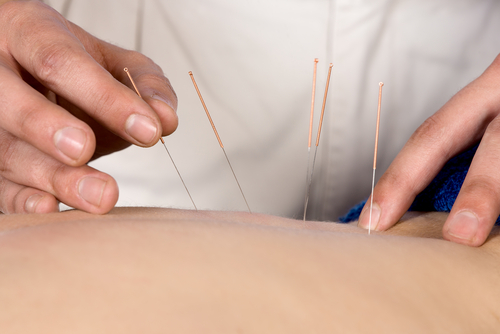Complementing Your MS Care
Written by |

Although it was over a decade ago, I still vividly remember the first questions I asked my neurologist after learning I had Multiple Sclerosis, “What can I do? Should I change my diet? Exercise more? Or less?” My first instinct was to look for a holistic way to minimize my chances of MS interfering with my life.
The answer, which probably won’t surprise you, was, “Nope – just take a look at these videos and choose a medication.” But that was in 2005 and much has changed since then.
The increasing frustration experienced by those who have lived for so many years with chronic illness, combined with the ability to crowd source information from people all over the globe via the internet, and the growing belief that patients should be their own primary advocate (not doctors), has led to a renewed focus on the importance of looking outside of traditional medical pathways to improve health. One thing to remember: complementary care doesn’t mean replacing conventional medicine; it means using it along WITH more traditional methods.

Reiki is sometimes used to complement traditional MS therapies.
We can sometimes feel overwhelmed by MS’s many demands — and other times by life’s demands. It’s important to make time (yes, time can be made) to focus on your health, which will in turn make you better able to address whatever is headed your way.
Lately I’ve been visiting healers who have helped me in the past (acupuncture) and trying new ones (Reiki). I’ve worked with chiropractors and massage therapists, physical therapists and personal trainers. Each appointment confirms my belief that self-care is one of the most important things we can do to help manage our illness.
Here are some tips on finding a complementary care practitioner:
- Finding a licensed and experienced practitioner is the first step, then see if you and s/he are a good fit.
- Often times the initial consultation with a skilled healer will shed light on issues that need to be addressed – sometimes we can verbalize these issues and other times we need some help bringing them into the open. Arrive at your appointment with an idea of your goals.
- Learn what’s expected to succeed. This is a critical step, so don’t skip it! Have a frank discussion and find out how their program works. This way you can move forward with confidence.
Maintaining your health isn’t a straight path, and it helps to be open to new experiences. There are many ways to complement your self-care.
Let me know what’s working for you!
In Health,
Elissa
Health Coach
Health/E, LLC
Are you looking to make meaningful change in your life? Ready to look and feel better? Elissa can work with you to reach your goals, improve your diet, increase energy and kick your sugar addiction. Find out more by scheduling a FREE breakthrough session at 917-941-9170 or at https://www.healthelissa.com.
Note: Multiple Sclerosis News Today is strictly a news and information website about the disease. It does not provide medical advice, diagnosis or treatment. This content is not intended to be a substitute for professional medical advice, diagnosis, or treatment. Always seek the advice of your physician or other qualified health provider with any questions you may have regarding a medical condition. Never disregard professional medical advice or delay in seeking it because of something you have read on this website.



Leave a comment
Fill in the required fields to post. Your email address will not be published.